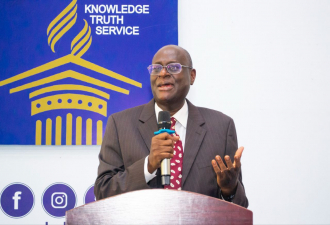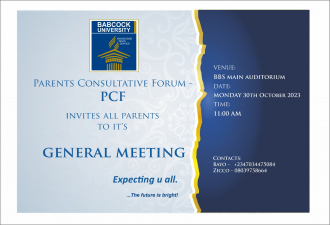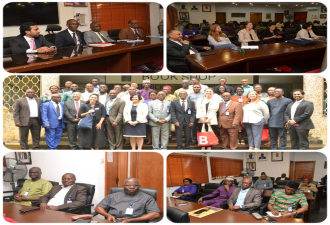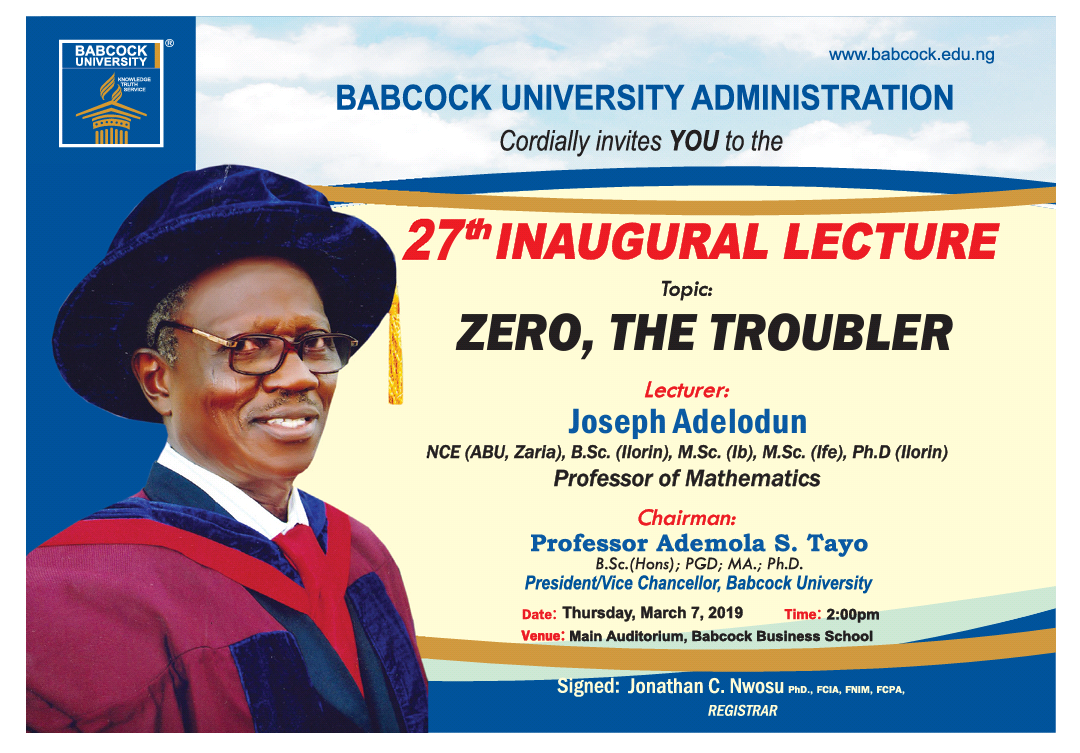The 27th Inaugural lecture of Babcock University was presented by Prof. Joseph Adelodun, a Professor of Mathematics on March 7, 2019. The lecture was the first inaugural lecture from the Department of Basic Sciences, School of Science and Technology.
The lecturer presented some research findings on the real number zero. He took a look at the set of real numbers with a view to define what a real number is so that someone can consequently decide what quantity is not a real number.
He inferred that a numeral is different from a number, just as a person is different from his or her name. A number is an abstraction in the mind. It was noted that some numbers are held in some sacred significance by different people. For example, the Jews and some set of Christians hold seven sacredly because of its religious connotation.
God created the heaven and the hearth in six days and rested on the seventh day, and command-ed that the people He created keep the seventh day as the day of rest. Seven is significant to some people at some point in time because the number of planets identified then was seven. Three is held significant by some because of religion; God exists in three distinct personalities, God the Fa-ther, the Son and the Holy Ghost. Three was significant to the primitive man because he believed that the universe was divided into three regions namely: heaven, earth and water. Prof Adelodun asserted that Zero is a Troubler in the sense that it is different from the rest of the numbers due to its peculiar properties. In his presentation, he tried to unravel how zero consti-tutes a trouble in mathematical computations. The properties of zero that engenders trouble are: additive identity, additive inverse, multiplicative property, division by zero, division by sharing, division by grouping, and division by adding the divisor. To buttress his claim the presenter cited the following examples:

No other number behaves this way. This may be a trouble for whoever does not understand this property. In the lecture, the following generally known methods of division are used to see if division by zero would no longer cause trouble. Division by Sharing A specific example is given: 20 ÷ 4.
In this method, four trays labelled 1, 2, 3, 4 may be put down and someone begins sharing twenty mangoes available into the tray, starting from tray 1, each time until the mangoes are exhausted. If done as expected the following is the result: That there are 5 mangoes in each tray shows that 20 ÷ 4 = 5. Using the same method, 20 ÷ 0 is attempted: put zero trays down and ask someone to share the twenty mangoes into them as done in the case of 20 ÷ 4. Since we have put zero trays down shows that there are no trays to share the mangoes into. So the division, 20 ÷ 0 is not possible. Hence, dividing any number by zero is not possible using this method

(ii). Division by grouping. Using this method, divide, 9 ÷ 3. Ask someone to put down in different places 3 groundnuts each out of the 9. If correctly done, the outcome should look like this. Since there 3 groups, 9 ÷ 3 = 3. If we divide, 9 ÷ 0, it is going to be impossible as in the case of 20 ÷ 0. Using the method of grouping, division by 0 is not possible. adding either 10 0’s or even 11 0’s does not make 10 or 11. According to the approach, 10 0 is not meaningful. It is evident that with this approach, dividing any non-number by 0 is not just possible. This is be-cause no number of 0’s that we may choose will add up to the number being divided thus causing some trouble.
Euclide a mathematician (born around 300 B.C.), in his division Algorithm excluded 0 as a divisor, ostensibly because of the facts given above. Durell in his own thesis simply asserted that we do not divide by zero. To find a solution to this problem, many other textbooks or authors, stated that “it is not right to divide by 0”, in other words division by zero is more or less taken as a taboo. But it has been clearly shown that it is not a ta-boo, it is simply not possible and it is not just meaningful or sensible.
The lecturer in the course of the inaugural recommended that research in mathematics be given the needed attention by way of floating postgraduate courses in mathematics which some have labored on in the past to prepare. In the same vein, he advocated for the approval of conversion pro-grams into mathematics to augment the enrolment of students pursuing degrees in mathematics.



